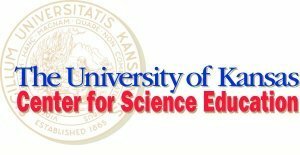 |
|
Science Literacy for All Kansans |
Research: Developing New Strategies for Studying
the Teaching and Learning of Science and Technology
ObjectivesUnderstanding the range of learning styles that students use as they accumulate scientific facts and explore the nature of the scientific process, discovering misconceptions that develop from current teaching practice or from the prior knowledge that a student brings to the study of science, and studying how students construct working models of the physical world from their experiences in the science classroom are key elements in constructing more effective teaching strategies. This information should inform all of our efforts in teaching and curriculum reform in the sciences and can guide our efforts to incorporate educational and scientific technology into university and pre-university courses in an effective manner. Teams of researchers at KU are engaged in studies of how human cognition influences science teaching and learning. Project Profiles1) Research on the Scientific Reasoning of All Students in the Middle Grades In this project, a multidisciplinary team of science teachers, cognitive and developmental psychologists, science educator, and special educator are collaborating to investigate the learning of scientific reasoning of students in the middle grades, including students with disabilities. The project will focus on the following areas of concentration from ROLE: the intersect between Quadrant II: Fundamental Research on Behavioral and Cognitive, Affective, and Social Aspects of Learning and Quadrant III: Research on SMET Learning in Educational Settings. We define scientific reasoning as the abilities to construct and evaluate scientific claims and to make and justify decisions about science and technology-related issues (e.g, global warming, genetically-engineered foods, health issues, risk assessment, teaching of evolution in schools). Our project will include a specific research focus on the development of students with high-incidence disabilities -- those with mild or moderate mental retardation, speech or language impairments, emotional disturbance, or specific learning disability; this group includes students with attention deficit disorders and attention deficit/hyperactivity disorders. In this project, we plan to examine patterns of scientific reasoning in middle-level students, including those with disabilities, to identify basic cognitive factors that might contribute to difficulties in scientific reasoning, and to develop instructional strategies to foster the development of scientific reasoning abilities in all middle-level students. The project will address the following research issues:
Key Personnel: , Associate Professor, Science Education |
Center Home | Objectives | Current Events | Center Staff | Resources | KU Home
Contact
This page last updated April 15, 2003